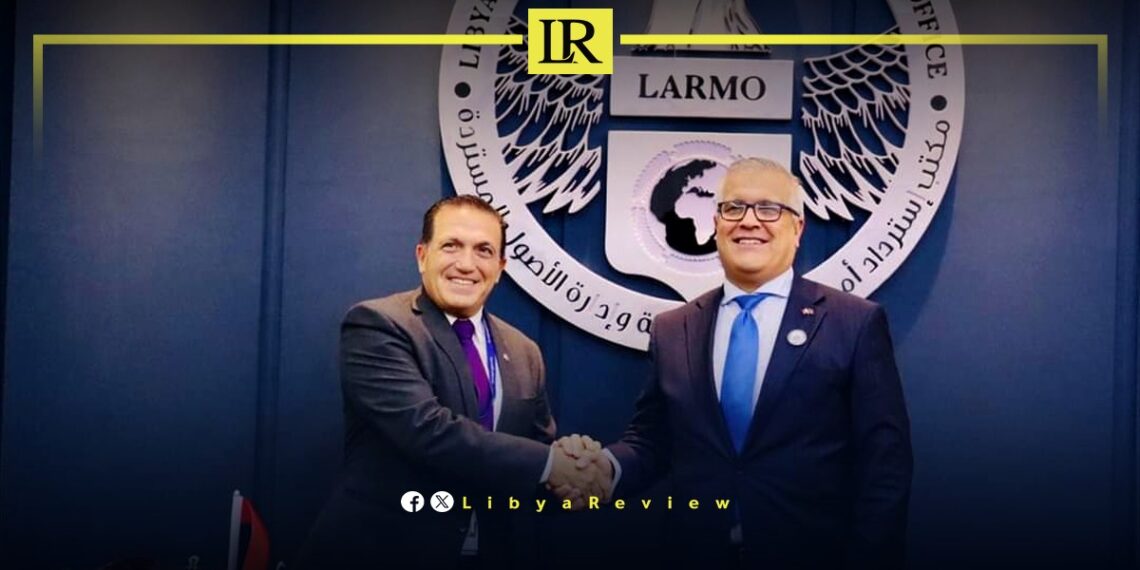The Director General of the Libyan Asset Recovery and Management Office (LARMO), Mohamed Ramadan Al-Mensli, held consultations with Malta’s Ambassador Charles Saliba at the office’s headquarters in Tripoli.
According to a statement by LARMO, the discussions focused on continuing the existing bilateral cooperation and providing updates on several related topics.
Al-Mensli expressed his appreciation for the ongoing support provided by the relevant government agencies in Malta, emphasizing the importance of its continuation.
In June, media sources in Mali highlighted the location of alleged billions of dollars belonging to the former Libyan regime, hidden in African countries. These funds might be fuelling money laundering networks, particularly in West Africa. As a result, financial transactions of several companies in the region are under increased scrutiny.
Following the fall of Colonel Muammar Gaddafi’s regime, the new Libyan authorities launched an international investigation to recover Libyan assets worldwide, especially in East and Southern Africa. Investigators were tracking around $100 billion. However, the investigation was abandoned after a few months due to a lack of cooperation from the target countries. The search resumed in 2023, as reported by Mali Web.
The website noted that international investigators have opened inquiries in West African nations, including Mali, Senegal, and Guinea, as well as in South Africa and Kenya, where the Libyan funds are purportedly hidden. According to South African press reports, the main treasure of the “Gaddafi family” is in South Africa, amounting to over a billion dollars in cash, gold, or diamonds.
Investigators fear that these funds could be used to support money laundering networks, particularly in West Africa. Enhanced financial monitoring is underway in countries like Senegal, Guinea, and Mali to trace the source of invested funds.
Ongoing investigations aim to trace these assets, identify those responsible for their embezzlement, and scrutinise notable African figures involved in investments. Often, looted funds are used to finance terrorism and criminal organisations. Removing these funds from global financial systems could enhance security and stability in the region.
Libyan governments have been striving for years to recover the country’s frozen assets held in various countries under UN Security Council Resolution 1973, issued in March 2011. This resolution was part of the sanctions against the Libyan regime during its suppression of the revolution that ousted it that same year.
There is no official figure on the total amount to be recovered, but Libyan officials estimate that assets in Europe alone could reach $200 billion. These are spread across numerous European countries in the form of fixed capital assets, deposits, shares, and tangible investments.


